Wednesday Feb 18, 2026
Wednesday Feb 18, 2026
Tuesday, 5 February 2019 01:09 - - {{hitsCtrl.values.hits}}
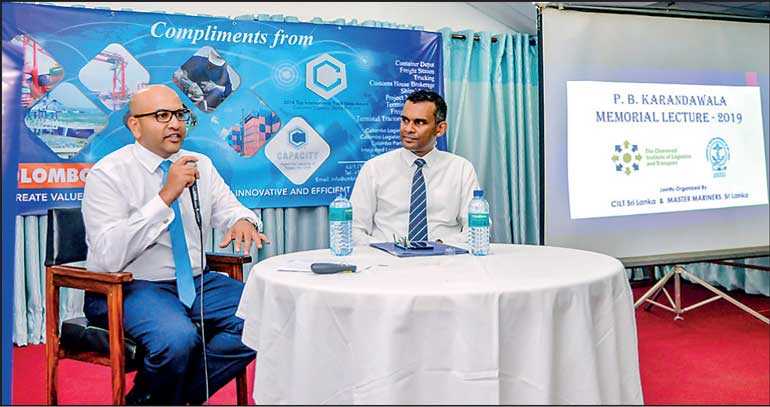
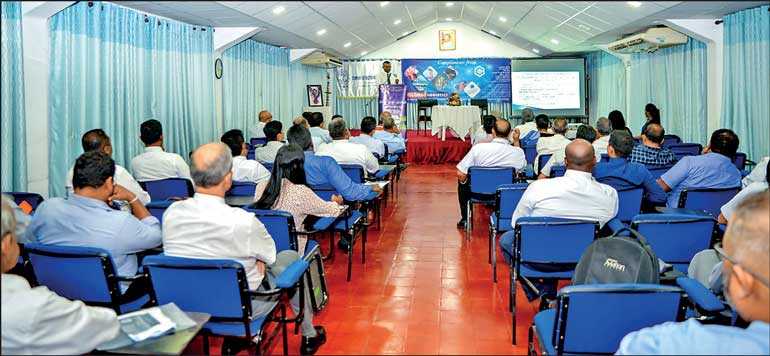
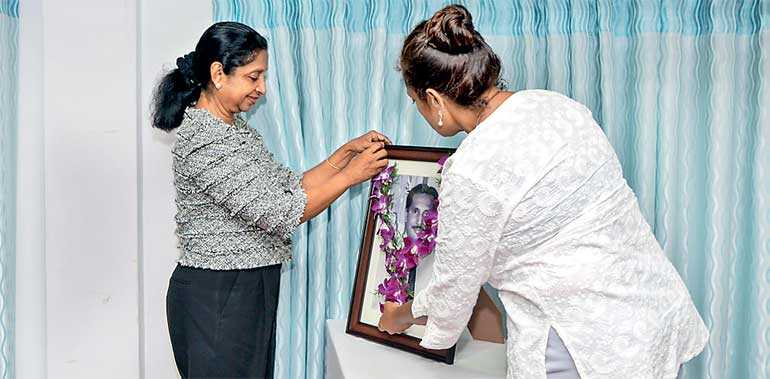
The Chartered Institute of Logistics and Transport (CILT) Sri Lanka held its 24th P.B. Karandawala Memorial Lecture on 24 January at Hector Kobbekaduwa Agrarian and Research Institute. The lecture was conducted jointly with Company of Master Mariners. Family members of late Karandawala were present at the talk.
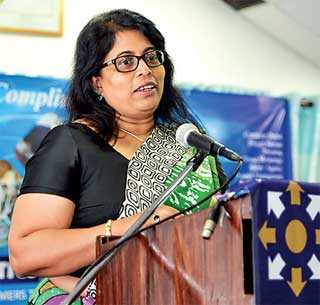 |
Chairperson welcoming the gathering |
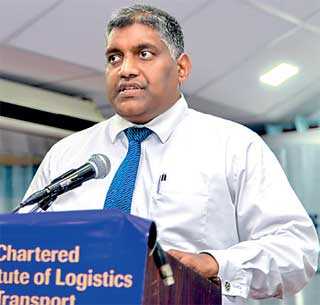 |
CMM Secretary Capt. Upul Peiris introducing the speaker |
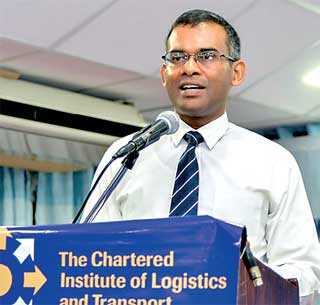 |
Keynote speaker Capt. Peshala Medagama addressing the gathering |
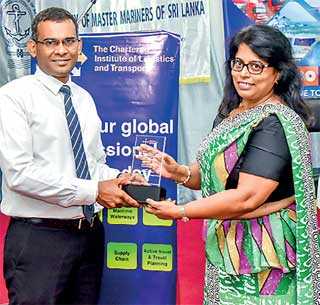 |
Chairperson handing over a token of appreciation to the keynote speaker |
The late P.B. Karandawala was widely regarded as a pioneer in developing the maritime sector in Sri Lanka. He had the rare distinction of being the Chairman of three state transportation entities that focus on three different modes, The Ceylon Shipping Corporation, Air Ceylon and Ceylon Transport Board, during the 1970s.
He established the National Shipping Line and structured around it several independent organisations to provide the support it needed in its nascent years, such as the Freight Bureau, the Ceylon Shipping Lines, the Port Services and the Colombo Dock Yard. He was known as a leading Economist from the Central Bank and later went on to serve the United Nations as a Shipping and Sectoral Economic Adviser to many developing countries.
The title of the memorial lecture was ‘Contribution of International Shipping and Maritime community towards sustainable development’ which was delivered by Capt. Peshala Medagama who is a CMILT and a CMM. He is an IMO consultant and Asst. Vice President International Relations, Foreign Projects and Local Branches and Consultant, Department of Marine Simulation, CINEC Maritime Campus.
In his speech he mentioned about 17 UN sustainable development goals and how the maritime community is working towards sustainable development. Amidst the global challenges that we face, Sri Lanka has committed to achieve these targets set for SDGs by 2030, he said.
He further elaborated that shipping is the life blood of the global economy and in future it will become the most environmentally friendly mode of freight transport than transporting goods by planes or trucks due to lowest carbon foot print per unit of cargo transported thereby ships of future becoming smarter, greener and faster. In concluding the speech, he reiterated that the shipping industry has an important role to play in helping to achieve the aforesaid goals before end of 2030. Q&A Session was moderated by Council member Ibrahim Saleem, CMILT.
The Chartered Institute of Logistics and Transport (CILT) is the leading international professional body for everyone who works within supply chain, logistics and transport. The institute holds unparalleled international recognition and works towards achieving its objective of promoting, encouraging and coordinating the study of the science and art of logistics and transport through its membership, events and educational qualifications.
With a global membership of over 34,000 CILT is present in 34 countries across the globe. CILT provides a professional identity to those in the ever-expanding Logistics and Transport industry. It is a strong, active and a unified professional body that is able to speak with authority on strategic issues affecting businesses and people in the industry and support their careers.